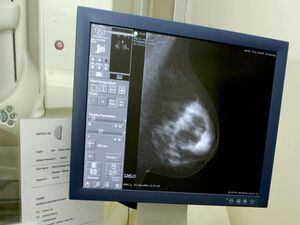Breast cancer spreads at night, new research suggests
Researchers say the finding could significantly change the way cancer is diagnosed and treated.

Breast cancer spreads most while patients are sleeping, new research suggests.
Researchers say the finding could significantly change the way cancer is diagnosed and treated in future.
They add that their study may also indicate the need for doctors to note the time that cancer biopsies are performed, as this may also influence the number of cancer cells detected.
According to the World Health Organisation (WHO), breast cancer is one of the most common forms of cancer, and each year around 2.3 million people worldwide contract the disease.
However, things become much more difficult if the cancer has already metastasised – spread to other parts of the body.
Metastasis occurs when circulating cancer cells break away from the original tumour, travel through the body via blood vessels and form new tumours in other organs.
The new study by researchers at ETH Zurich, the University Hospital Basel and the University of Basel found that circulating cancer cells which later form metastases mainly arise while people are sleeping.
Study leader Nicola Aceto, Professor of molecular oncology at ETH Zurich, Switzerland, said: “When the affected person is asleep, the tumour awakens.”
“Our research shows that the escape of circulating cancer cells from the original tumour is controlled by hormones such as melatonin, which determine our rhythms of day and night,” added Zoi Diamantopoulou, the study’s lead author and a postdoctoral researcher at ETH Zurich.
According to the researchers, cells that leave the tumour at night also divide more quickly and therefore have a higher potential to form metastases, compared with circulating cells that leave the tumour during the day.
The scientists were also surprised to find that samples taken at different times of the day had very different levels of circulating cancer cells.
Another clue was the high number of cancer cells found per unit of blood in mice compared with humans.
As nocturnal animals, mice sleep during the day, which is when scientists collect most of their samples.
Prof Aceto said: “In our view, these findings may indicate the need for healthcare professionals to systematically record the time at which they perform biopsies.
“It may help to make the data truly comparable.”
Next researchers hope to establish how these findings can be incorporated into existing cancer treatments to optimise therapies.
The findings are published in the Nature journal.





